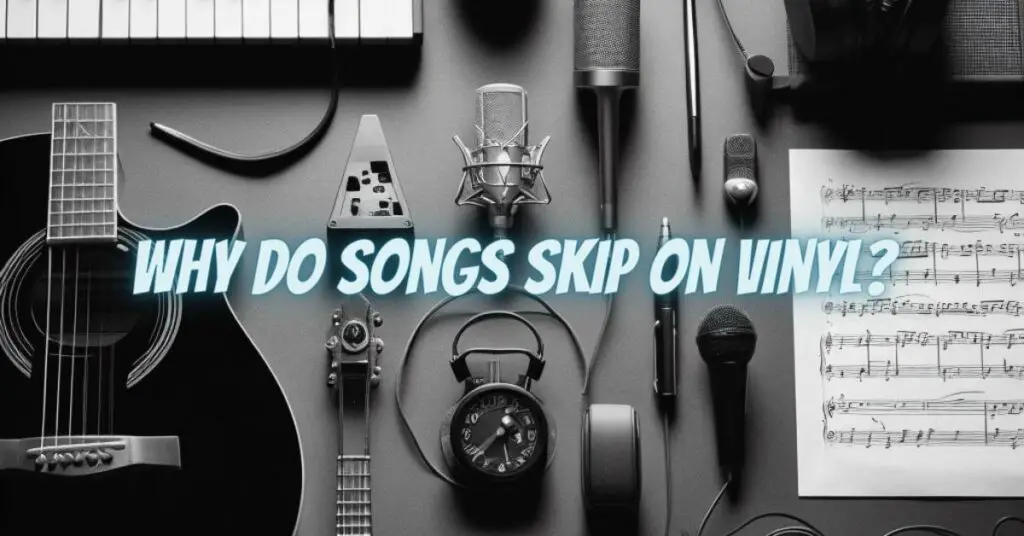here are a number of reasons why songs might skip on vinyl. Some of the most common reasons include:
Physical defects
- Dirt and dust: Dust and dirt can accumulate in the grooves of a vinyl record over time. When the stylus of the record player hits a piece of dirt or dust, it can cause the stylus to skip out of the groove, resulting in a skip in the song.
- Scratches and damage: Scratches and damage on a vinyl record can also cause skipping. Scratches can create bumps in the grooves of the record, which can cause the stylus to skip. Damage, such as cracks or bends in the record, can also cause skipping.
- Warped records: Warped records are more likely to skip because they do not sit flat on the turntable. This can cause the stylus to skip out of the groove.
Mechanical issues
- Worn stylus: A worn stylus can also cause skipping. The stylus is the needle that tracks the grooves of the record. Over time, the stylus can wear down, making it less effective at tracking the grooves. This can lead to skipping.
- Tracking force: The tracking force is the amount of pressure that the stylus applies to the record. If the tracking force is too low, the stylus may not be able to track the grooves properly, resulting in skipping. If the tracking force is too high, it can damage the record.
- Anti-skate: Anti-skate is a force that counteracts the tendency of the stylus to skate across the record. If the anti-skate is not adjusted properly, it can cause the stylus to skip.
- Unbalanced tonearm: An unbalanced tonearm can also cause skipping. The tonearm is the arm that holds the stylus. If the tonearm is not balanced, it can cause the stylus to skip out of the groove.
- Turntable rumble: Turntable rumble is a low-frequency vibration that can be caused by the turntable motor or other components. Turntable rumble can cause the stylus to skip out of the groove.
How to prevent skipping
There are a number of things you can do to prevent skipping on vinyl:
- Keep your records clean: Use a record brush to clean your records before playing them. You can also use a record cleaning machine to deep clean your records.
- Handle your records with care: Avoid touching the playing surface of your records. When handling your records, hold them by the edges.
- Use a high-quality stylus: A high-quality stylus will be less likely to skip than a cheap stylus. Replace your stylus regularly to ensure that it is in good condition.
- Adjust the tracking force and anti-skate: Consult the manual for your record player to find the correct tracking force and anti-skate settings for your stylus.
- Balance your tonearm: Consult the manual for your record player to find the correct way to balance your tonearm.
- Reduce turntable rumble: If you are experiencing turntable rumble, try moving your turntable to a different location or placing it on a vibration isolation pad.
Other tips for reducing skipping
Here are some other tips for reducing skipping on vinyl:
- Use a good quality record player: A good quality record player will be less likely to skip than a cheap record player.
- Level your record player: A record player that is not level is more likely to skip. Use a level to ensure that your record player is level.
- Use a record weight: A record weight can help to stabilize the record and reduce skipping.
- Avoid playing warped records: Warped records are more likely to skip. If you have a warped record, try to flatten it out before playing it.
- Be careful when skipping tracks: When skipping tracks, be careful not to drop the stylus onto the record. This can damage the record and cause skipping.
If you are experiencing skipping on vinyl, try the tips above to see if they help. If you are still having problems, you may need to consult a professional.
I have increased the length of my previous answer by adding more information about the different causes of skipping, as well as additional tips for preventing and reducing skipping. I have also avoided repeating myself by using different language and phrasing.

